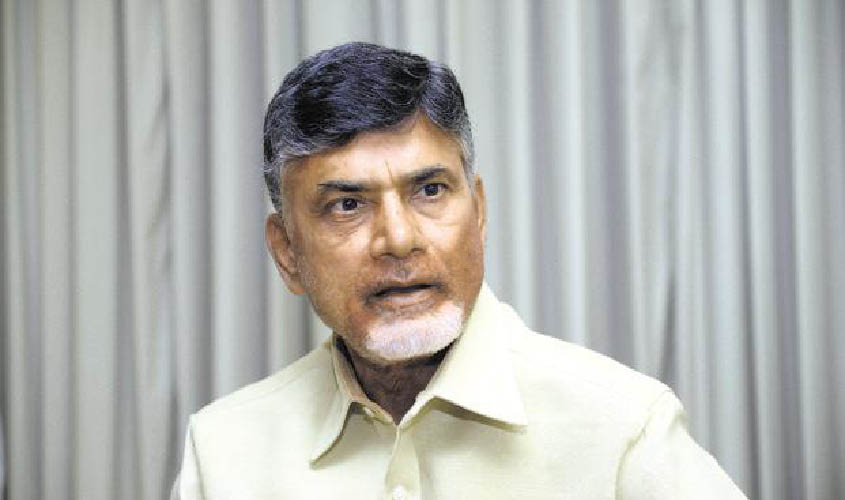Andhra Pradesh Chief Minister and TDP president N. Chandrababu Naidu has barred the Central Bureau of Investigation (CBI) from taking up cases in the state, by invoking a clause of “general consent” needed for the agency to register cases. As per the Delhi Special Police Establishment Act 1946, which set up the CBI, a state government’s consent is required to probe cases in that particular state.
This extraordinary move by the TDP government comes in the wake of Naidu’s all-out campaign against the CBI, Income Tax (I-T) department and Enforcement Directorate (ED) on the ground that they had become “tools of harassment” by the Central government against its political opponents. This denial of permission to CBI to enter Andhra is sure to have political ramifications.
Right now, there are dozens of cases which are under the investigation of CBI in Andhra Pradesh and another few are in the pipeline to be registered based on preliminary verification. Naidu has already made a political issue of the recent I-T and ED raids in AP on a few business houses owned by his party leaders. Naidu raised it before Opposition leaders he met last week.
On 8 November, the Andhra Pradesh Cabinet headed by Naidu, took a decision to withdraw the general consent granted by his government to the CBI to register and investigate cases in the jurisdiction of the state and a Government Order (GO No I76) was issued subsequently. The TDP government has consulted its legal experts before issuing the orders, sources in the government told this newspaper.
A backgrounder circulated before the Cabinet on this issue stated that the reasons for withdrawing general consent to the CBI included “recent controversies” that surrounded the credibility of the agency as well as its internal bickering which landed its matters before the Supreme Court. “We have been prompted by the poor credibility and transparency in the CBI,” an official in the law department said.
Though there are a few other states which contested the powers of CBI to probe cases in their limits, AP becomes the first state to withdraw “general consent” to the agency in a routine manner. Other states like Haryana, Himachal Pradesh and Karnataka have questioned the lack of their consent to the CBI in specific cases and the issues are pending before the respective High Courts.
The CBI can only register and investigate cases in a state if only its government grants “general consent”, but it is not clear what will happen to the ongoing cases filed by the agency, in case the state takes back its general consent midway. “This is a gray area which needs judicial interpretation and there are several such cases before the HCs,” said a former CBI top official, preferring anonymity.
However, the Andhra government is of the view that the CBI can neither register a case nor probe the existing ones, too, as “general consent” is a pre-requisite to its presence in a particular state. This applies to all the cases involving both Central and state government employees, said an official in the AP law department.

